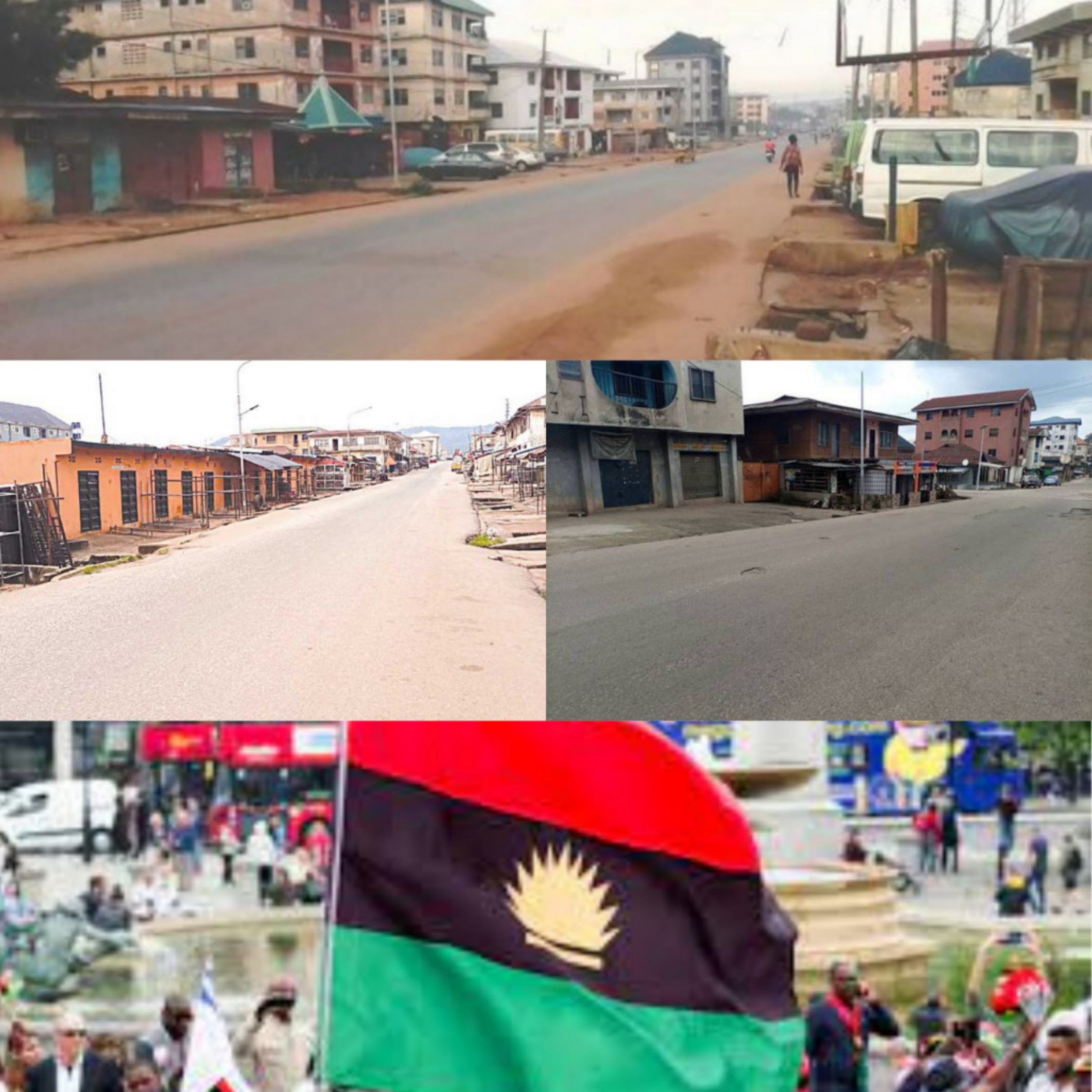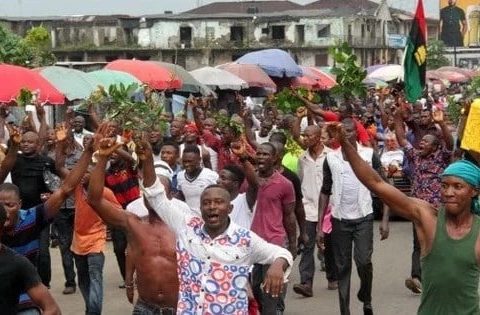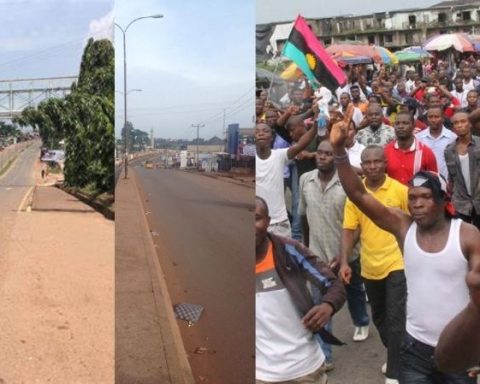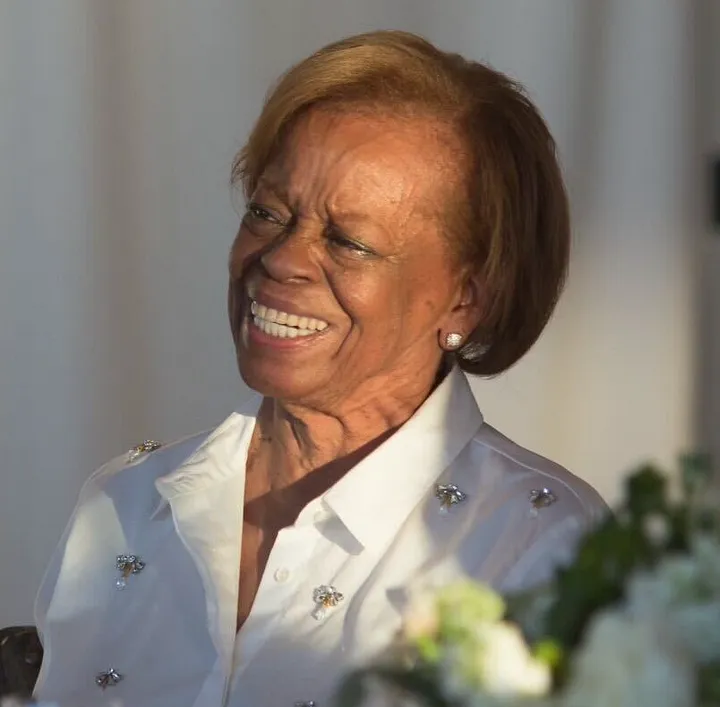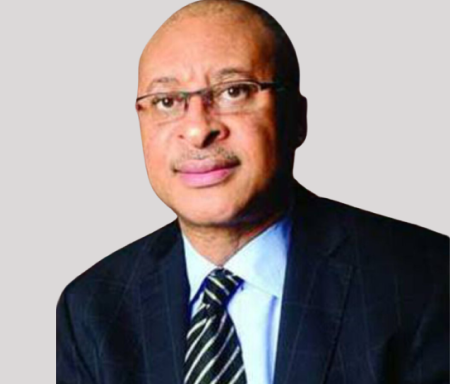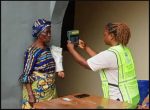Sit-at-home is an instrument of civil disobedience deployed sparingly and willingly by a group of people to protest wrongdoing against them, however, that apparently has not been the case in Southeast Nigeria since 2021 when it was first declared by the Indigenous People of Biafra (IPOB).
IPOB leader, Nnamdi Kanu, had prior to the Biafra Day in 2021 declared sit-at-home for three days in all the six states in Southeast.
Join our WhatsApp ChannelIt did not go without skirmishes as some people lost their lives and properties of those who came out in some states in the region were destroyed.
It became a routine means for protesting the detention of Nnamdi Kanu, who was arrested and extradited to Nigeria in June 2021.
Every Monday, people in the southeastern states of Abia, Anambra, Ebonyi, Enugu, and Imo are forced to stay indoors, shutting down businesses, schools, markets, and other economic activities as a form of protest against Kanu’s continued incarceration by the Nigerian government.
Different governors in the region have made attempts at different times to stop the Mondays sit-at-home but have not fully succeeded.
To mark this year’s Biafra Day, IPOB had declared sit-at-home on May 30 ( a day set aside to honour those who died during Biafra war).
READ ALSO: Anambra Police Arrest Illegal Sit-at-home Enforcer, Recover 1 Gun, 4 Cartridges, Other Items
May 30th 1967 marked a pivotal moment in Nigeria’s history when Lieutenant Colonel Chukwuemeka Odumegwu Ojukwu the then governor of the Eastern region declared the Republic of Biafra secession from Nigeria. This move was a culmination of longstanding tensions and grievances between the primarily Igbo people of the region and the Nigerian government.
The root of the Biafran struggle can be traced back to the colonial era, when the Igbo people, as recounted in Chinua Achebe’s “There Was a Country,” thrived under British rule, making significant strides in education and economic development. However, after Nigeria gained independence in 1960, the Igbos felt increasingly marginalized and discriminated against by the federal government dominated by the Hausa-Fulani and Yoruba ethnic groups.
Tensions reached a breaking point in 1966 when a series of military coups and counter-coups led to the massacre of thousands of Igbo civilians living in northern Nigeria, an event referred to as the “Nigerian Pogroms” or the “Igbo Genocide.” This tragedy, documented in works like “The Biafran Humanitarian Crisis, 1967-1970” by G.N. Uzoigwe, sparked an exodus of Igbo people from the north back to the eastern region for safety.
Faced with the threat of further violence and fueled by a deep-seated desire for self-determination, the then-military governor of the Eastern Region, Ojukwu, declared the region’s independence on May 30th, 1967. In his broadcast, Ojukwu cited the failure of the Nigerian government to protect the lives and properties of the Igbo people as the primary reason for the secession. The newly formed Republic of Biafra, named after the Bight of Biafra (the Atlantic bay to its south), was envisioned as a sovereign state for the Igbo people and other ethnic groups in the region.
The declaration of independence, as detailed in Frederick Forsyth’s book “The Biafra Story,” was met with immediate rejection by the Nigerian federal government, led by General Yakubu Gowon, who viewed it as an act of secession. This marked the beginning of a brutal civil war that lasted nearly three years, resulting in widespread devastation, displacement, and a humanitarian crisis that claimed the lives of millions, primarily due to starvation and disease.
Despite the eventual defeat of Biafran forces in 1970 and the reintegration of the region into Nigeria, May 30th still holds immense significance for the Igbo people and supporters of the Biafran cause. It symbolizes the struggle for self-determination, the resilience of the Igbo people in the face of adversity, and serves as a reminder of the deep-rooted ethnic and cultural divides that continue to shape Nigeria’s political and social landscape. We are also reminded of the ongoing struggles of the Igbo people and other marginalized communities in Nigeria. The call for self-determination and autonomy remains a pressing issue, and it is crucial that the authorities engage in constructive dialogue with legitimate agitators and find peaceful solutions to these conflicts.
Some have called for May 30th to be declared a public holiday to commemorate what happened during the civil war, honour those killed and the sacrifices made, just like we have June 12 as Democracy Day in Nigeria.
While opinions on the legitimacy and feasibility of an independent Biafra remain divided, the date holds profound historical and cultural significance for those who remember the turbulent events of 1967 and the enduring quest for recognition and self-governance spurred by obvious systemic marginalization of the region.
It is the fundamental right of citizens in every democratic establishment to protest acts of misgovernance that affect their lives in a lawful and peaceful manner. In this case, sit-at-home may be deployed willingly and collectively. However, our experiences in the last three years have shown that a group of people who claim to be IPOB members have used threat and physical force on residents in Southeast to enforce sit-at-home. Many have wondered the rationale behind unleashing mayhem on innocent people who have no stake in what is happening. Even when IPOB declared an end to the sit-at-home, seeing the dangerous dimension it was taking, another faction emerged and continued to enforce it, aggravating security challenge in the region and impoverishing people with the region losing billions of naira each time the order is given. This is aside from those whose goods were destroyed for daring to open for business on days such an order was given.
READ ALSO: Nnamdi Kanu’s Case Taking The Shape Of Mandela, Nkrumah, Kenyatta, Kaunda Trials – Uwazurike
Commenting on the enforcement of sit-at-home order in Southeast sometime in 2022, a former senator who represented Kaduna Central District in the 8th Assembly, Shehu Sani, described it as a form of terror and tyranny.
Sani had said that sit-at-home is a “peaceful and legitimate means of dissent or civil protest; but once it’s enforced by force, violence or threats, and complied with out of fear, it has become another form of terror and tyranny.”
The Thursday’s sit-at-home led to killing of five soldiers and six civilians in Abia State. The Nigerian military has reacted to the killing, threatening to retaliate while the Abia State governor, Alex Otti placed a N25 million bounty on killers of the soldiers.
There are concerns that criminal elements have infiltrated the IPOB or using the name of the group or its armed wing, Eastern Security Network, to commit heinous crimes in the region.
Meanwhile, the President-General of Ohanaeze Ndi-Igbo, Chief Emmanuel Iwuanyanwu, has distanced himself, the organisation, and the detained IPOB leader, Nnamdi Kanu, from the killing of the soldiers. Also, IPOB spokesman, Emma Powerful, declared that the group had no hand in the killing, pointing accusing fingers at politicians as perpetrators of the attack.
All these call for thorough investigation to unmask those behind the crimes and prosecute them accordingly.
There are expert opinions that when there is good governance that promote equitable distribution of national resources, development projects and other activities that promote the welfare of all citizens, regional agitations would gradually fizzle out.
Also, the calls for a political solution to the case between Kanu and the Federal Government is something President Bola Tinubu needs to consider urgently in order to free the IPOB leader and restore peace in Southeast region.


